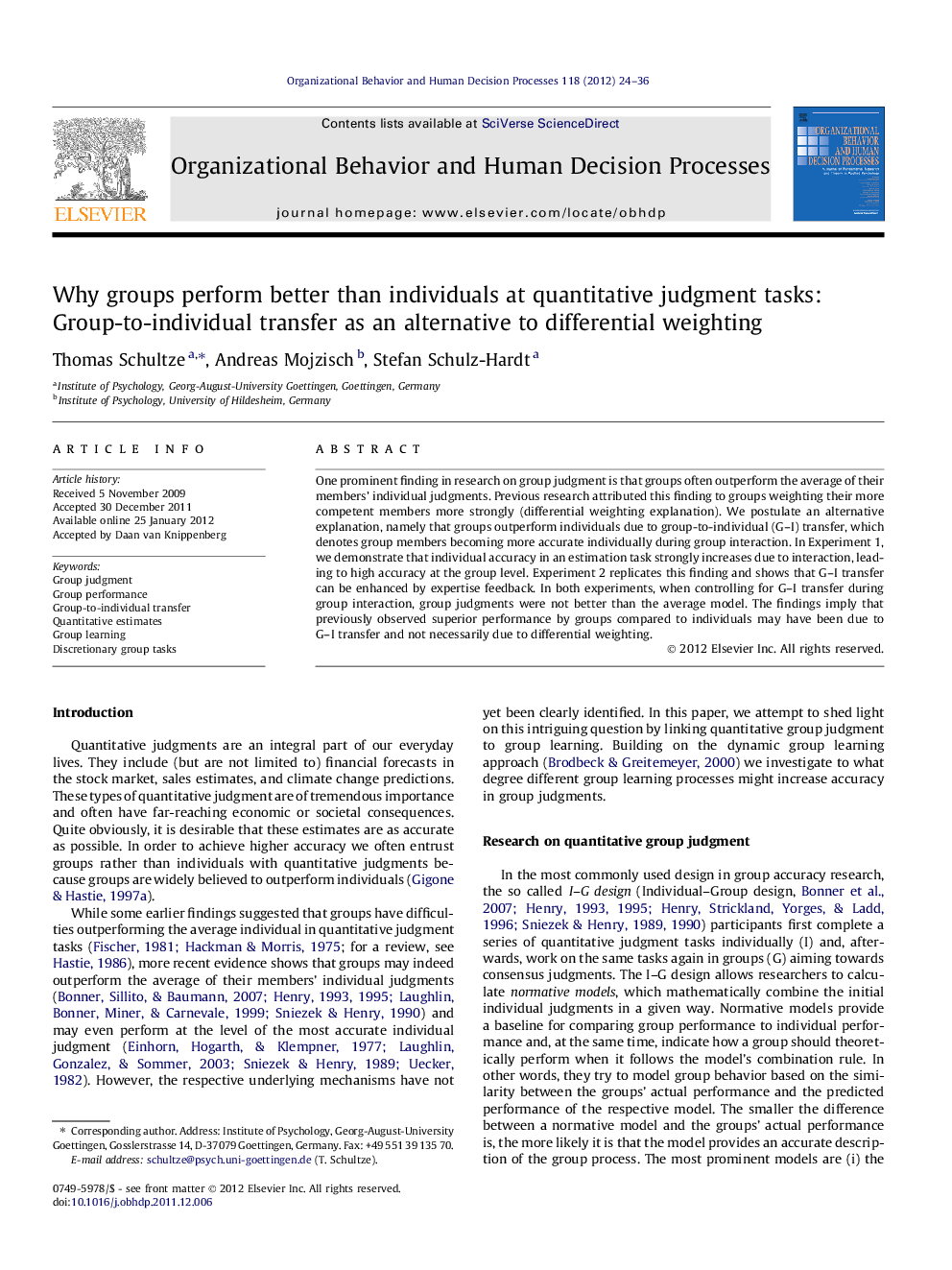| Article ID | Journal | Published Year | Pages | File Type |
|---|---|---|---|---|
| 888673 | Organizational Behavior and Human Decision Processes | 2012 | 13 Pages |
One prominent finding in research on group judgment is that groups often outperform the average of their members’ individual judgments. Previous research attributed this finding to groups weighting their more competent members more strongly (differential weighting explanation). We postulate an alternative explanation, namely that groups outperform individuals due to group-to-individual (G–I) transfer, which denotes group members becoming more accurate individually during group interaction. In Experiment 1, we demonstrate that individual accuracy in an estimation task strongly increases due to interaction, leading to high accuracy at the group level. Experiment 2 replicates this finding and shows that G–I transfer can be enhanced by expertise feedback. In both experiments, when controlling for G–I transfer during group interaction, group judgments were not better than the average model. The findings imply that previously observed superior performance by groups compared to individuals may have been due to G–I transfer and not necessarily due to differential weighting.
► We present first evidence for G–I transfer in group judgment. ► We find no evidence for differential weighting based on expertise or accuracy. ► G–I transfer offers an alternative explanation for the superior accuracy of groups. ► When G–I transfer is controlled, groups performed at the level of their average member.
